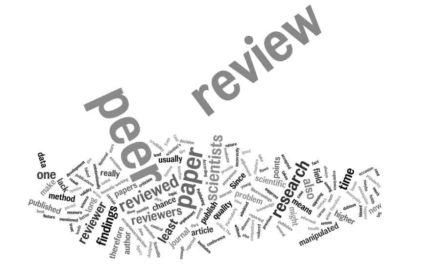Introduction
Peer review is an essential component of the academic publishing process, ensuring that research is rigorous, credible, and contributes meaningfully to the field. Peer reviewers play a critical role in maintaining scholarly standards by evaluating manuscripts, providing constructive feedback, and helping editors make informed decisions about publication.
Becoming an excellent peer reviewer requires a deep understanding of the subject area, a keen eye for detail, and the ability to provide fair and constructive criticism. This article provides helpful tips on how to develop strong peer-reviewing skills and become an effective and respected reviewer.
1. Understand the Role and Responsibilities of a Peer Reviewer
Before committing to a peer-review assignment, it is crucial to understand what is expected of you.
1.1 Key Responsibilities
- Evaluate the quality, originality, and validity of the research.
- Identify strengths and weaknesses in the manuscript.
- Provide constructive and unbiased feedback.
- Recommend whether the paper should be accepted, revised, or rejected.
- Ensure ethical integrity, checking for plagiarism, data manipulation, and conflicts of interest.
1.2 Ethical Considerations
- Confidentiality: Never share details of the manuscript with others.
- Objectivity: Base your review on the quality of the research, not personal biases.
- Timeliness: Complete your review within the journal’s deadline.
By following these principles, you contribute to a fair and credible peer-review system.
2. Accept Only Papers Within Your Expertise
Journals invite reviewers based on their expertise, but it is important to assess whether you are qualified to review a particular paper.
2.1 When to Accept a Review Request
- The manuscript falls within your area of expertise.
- You have the time to complete the review within the given deadline.
- There are no conflicts of interest with the authors or research.
2.2 When to Decline a Review Request
- The topic is outside your field, making it difficult to provide an informed evaluation.
- You have a professional or personal relationship with the author(s), which may lead to bias.
- You are overcommitted with other obligations and cannot provide a thorough review.
If you decline a review, it is courteous to suggest alternative reviewers who may be suitable.
3. Read the Manuscript Thoroughly Before Forming an Opinion
A good peer review is based on careful reading and analysis of the manuscript. Follow these steps to ensure a comprehensive review:
3.1 First Reading: Overview and Initial Impressions
- Read the title, abstract, and introduction to understand the study’s objectives.
- Skim the methodology, results, and discussion to get a general sense of the research.
- Identify any immediate concerns, such as unclear hypotheses or weak research design.
3.2 Second Reading: Detailed Evaluation
- Assess the clarity and coherence of the manuscript.
- Examine the research methodology for validity and reproducibility.
- Evaluate the data analysis and interpretation for logical consistency.
- Check the references and citations for completeness and relevance.
Taking notes while reading helps structure your review and ensures you address all critical aspects of the manuscript.
4. Provide Constructive and Specific Feedback
A high-quality review offers specific, actionable, and respectful feedback. Avoid vague or overly critical comments.
4.1 Structure of a Good Review
- Summary of the Manuscript: Briefly describe the paper’s objectives and main findings.
- Major Strengths: Highlight the paper’s contributions to the field.
- Major Weaknesses: Identify key issues that must be addressed.
- Specific Suggestions for Improvement: Provide detailed recommendations on how to enhance the manuscript.
4.2 Examples of Effective Feedback
✅ Good Feedback:
“The study presents an interesting analysis of climate change impact; however, the methodology lacks clarity. Please provide more details on the sampling technique and statistical models used.”
❌ Bad Feedback:
“The methodology is weak and unclear.”
✅ Good Feedback:
“The discussion section does not fully explore the implications of the findings. Consider referencing recent literature to strengthen this section.”
❌ Bad Feedback:
“The discussion is incomplete.”
Providing specific guidance helps authors improve their manuscript while maintaining professionalism.
5. Be Fair and Unbiased in Your Evaluation
An excellent peer reviewer evaluates manuscripts based on scientific merit, not personal opinions.
5.1 Avoid Bias in Your Review
- Do not reject a paper just because it contradicts your own research.
- Avoid favoritism if you recognize the author’s work.
- Evaluate data objectively, even if it challenges prevailing theories.
5.2 Handle Controversial or Weak Papers Professionally
- If a paper has serious flaws, provide constructive criticism rather than outright dismissal.
- If the study is weak but has potential, suggest major revisions rather than rejection.
6. Follow the Journal’s Review Guidelines
Different journals have specific formats and expectations for peer reviews.
6.1 Check the Journal’s Criteria
- Some journals require structured review forms (e.g., rating methodology, originality, and clarity).
- Others prefer free-form narrative reviews.
6.2 Formatting Your Review
- Start with an overall summary.
- List major and minor concerns separately.
- Be concise but thorough, avoiding unnecessary repetition.
By following the journal’s expectations, you make the editor’s job easier and ensure your review is valuable.
7. Be Professional and Respectful in Your Review
A great peer reviewer maintains professionalism, even when pointing out significant flaws.
7.1 Maintain a Respectful Tone
- Avoid harsh or dismissive language.
- Use phrases like “The argument could be strengthened by…” rather than “This argument is weak.”
7.2 Keep Criticism Focused on the Work, Not the Author
✅ Good Feedback:
“The argument in section 3 would benefit from additional citations to support the claims.”
❌ Bad Feedback:
“The author clearly does not understand this topic.”
Professionalism encourages constructive dialogue and improves the manuscript’s quality.
8. Meet Deadlines and Communicate Effectively
Peer review is a time-sensitive process. Journals rely on reviewers to submit timely evaluations.
8.1 Plan Your Review Timeline
- If you accept a review, aim to complete it within 2-4 weeks.
- If you need more time, inform the editor promptly.
8.2 If You Cannot Complete a Review
- Notify the editor immediately.
- Suggest alternative reviewers if possible.
Timely and reliable reviewers build a strong reputation and are more likely to be invited for future reviews.
9. Continue Improving Your Peer-Reviewing Skills
Becoming an excellent peer reviewer requires ongoing learning and refinement.
9.1 Stay Updated in Your Field
- Read the latest journal articles and review papers.
- Attend academic conferences and workshops.
9.2 Learn from Other Reviewers
- Read published peer reviews (some open-access journals publish reviewer reports).
- Observe how senior researchers write critiques.
Conclusion
Being an excellent peer reviewer is a valuable skill that benefits both the academic community and your own career. By providing constructive, fair, and timely reviews, you contribute to the integrity of research while gaining insights that improve your own scholarly writing.
Through clear communication, ethical reviewing, and commitment to continuous learning, you can become a respected and effective peer reviewer who plays a crucial role in advancing academic knowledge.














